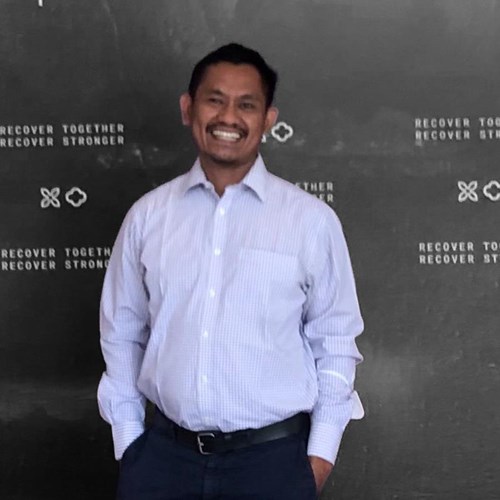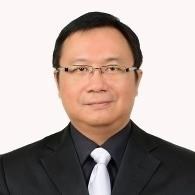Background
The adoption of artificial intelligence has recently accelerated, including the release of Chat GPT, and it is increasingly becoming a mainstream technology. This creates a range of benefits and risks. However, through concerted action, these and other tools can be harnessed to accelerate decarbonization across the economy. Digitalization and smart energy technologies bring the promise of higher productivity, economic growth, improved efficiency, and convenience, among others. Converting this promise into a just transition involves several steps including identifying reliable data, making that data accessible, building the underlying data infrastructure, conveying data, and building the applications to support conveyance and the human interfaces to receive and comprehend the insights provided by that data. Many of the technologies, business operations and models, and data exist. The spotlight session will discuss the applications of digitalization and smart energy technologies, case studies of impacts, and how it will transform our approach towards decarbonization across sectors.Objectives
The spotlight session will discuss the applications of digitalization and smart energy technologies, case studies of impacts, and how it will transform our approach towards decarbonization across sectors.
AGENDA
2:00 - 2:05 p.m.
Welcome and Agenda
Stephanie KC Hung, Chief Information Officer and Director General, Information Technology Department, ADB
2:05 - 2:15 p.m.
Opening Remarks
Digitalisation: Role of International Climate Finance
Dr. Peter Warren, UK Government
2:15 - 2:25 p.m.
Session 1: Democratizing Energy through the Cloud
Scene Setter: Dr. Ken Haig, Head of Energy and Environmental Policy for Asia Pacific and Japan, Amazon Web Services (AWS)
2:25 - 3:05 p.m.
Presentations:
Integration of Distributed Renewable Energy Systems with Geospatial Platform
Abdul Khalid, Program Associate, World Resources Institute
Microgrid Solutions: Sustainable, Resilient and Economical Power
Richard Richard, Senior Sales Manager, Indonesia & the Philippines, Jenbacher Gas Engines – New Units & Services
No Tonne Left Behind - Designing Democratized Decarbonization of Waste Management through the ADB WARPS Tool
Dr. Piya Kerdlap, Managing Director, PXP Sustainability
3:05 - 3:25 p.m.
Moderated Panel Discussion
Moderator: Steve Peters, Senior Energy Specialist, ADB
Panelists:
Dr. Ken Haig, AWS
Abdul Khalid, WRI
Richard Richard, Jenbacher Gas Engines – New Units & Services
Dr. Piya Kerdlap, PXP Sustainability
Eva Oberender, Renewable Energy and Energy Efficiency Partnership (REEP)
3:25 - 3:30 p.m.
Wrap up and Summary
Steve Peters, Senior Energy Specialist, ADB
3:30 - 4:00 p.m.
Coffee Break
4:00 - 4:10 p.m.
Session 2: Creating the Human Infrastructure Capacity to Decarbonize our Civilization through Apps
Scene Setter
Fireside chat with Thomas Abell, Chief of Digital Technology for Development, Sustainable Development and Climate Change Department, ADB and Ms. Rachel Teo, Head of Public Policy, Singapore, SEA, Sustainability (APAC), Google
4:10 - 4:50 p.m.
Presentations
Sustainability at Google
Yves Gonzalez, Head, Government Affairs and Public Policy (Philippines), Google
The application of smart meters and demand side management for centralised solar PV in Indonesia
Dedy Haning, Demonstration Project Strand Lead, MENTARI Hivos
Empowering Industrial SMEs to Boost Energy Efficiency
Zarmina Khan, Sustainability Researcher, eeaser
Enabling Floating Solar Photovoltaic (FPV) Deployment: Renewable Energy (RE) Data Explorer as a Tool for Data-Driven Decision Making
Sika Gadzanku, Technical Lead, Floating Solar in Southeast Asia, National Renewable Energy Laboratory
4:50 - 5:25 p.m.
Moderated Panel Discussion
Moderator: Steve Peters, Senior Energy Specialist, ADB
Yves Gonzalez, Google
Dedy Haning, MENTARI Hivos
Zarmina Khan, eeaser
Sika Gadzanku, NREL
5:25 - 5:30 p.m.
Wrap up and Summary
Steve Peters, Senior Energy Specialist, ADB
SPEAKERS
About the Organizer
The Asian Development Bank (ADB) is committed to achieving a prosperous, inclusive, resilient, and sustainable Asia and the Pacific, while sustaining its efforts to eradicate extreme poverty. It assists its members and partners by providing loans, technical assistance, grants, and equity investments to promote social and economic development.













